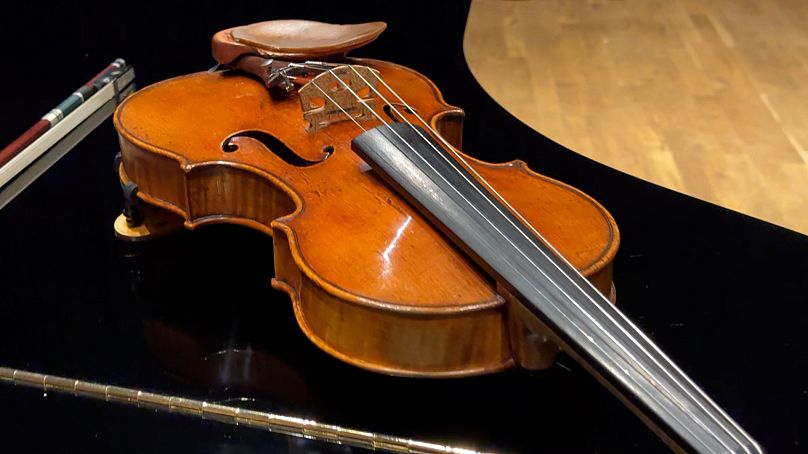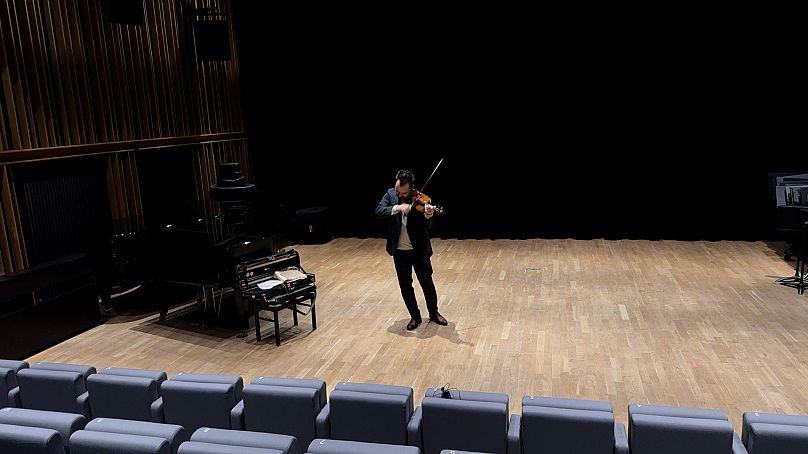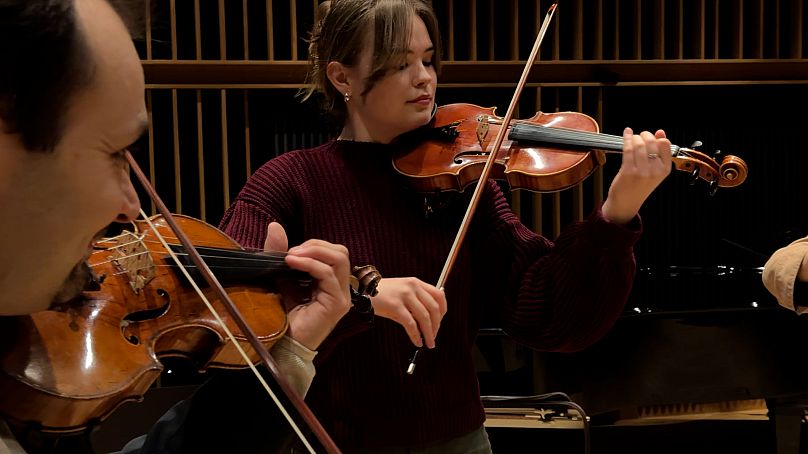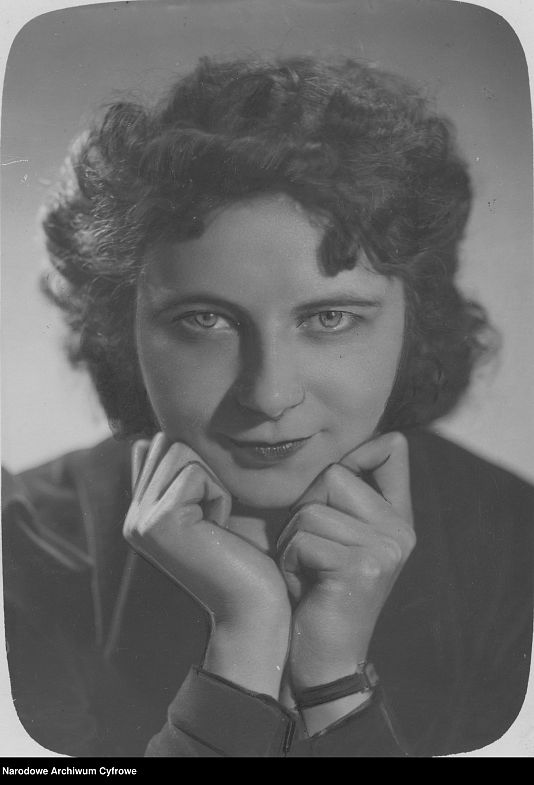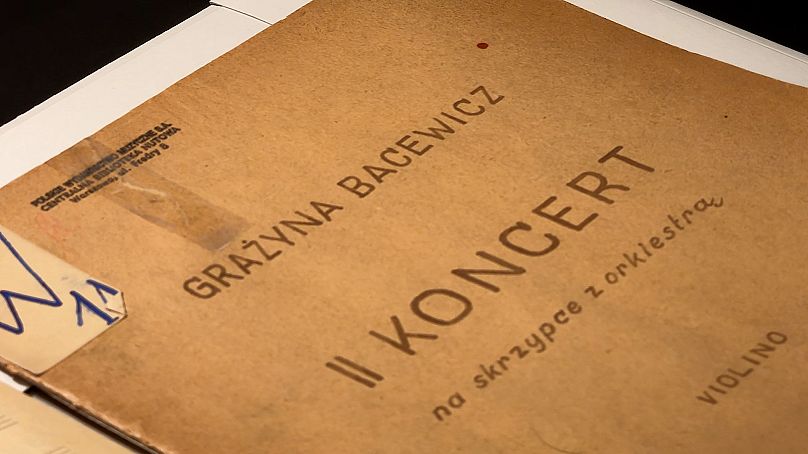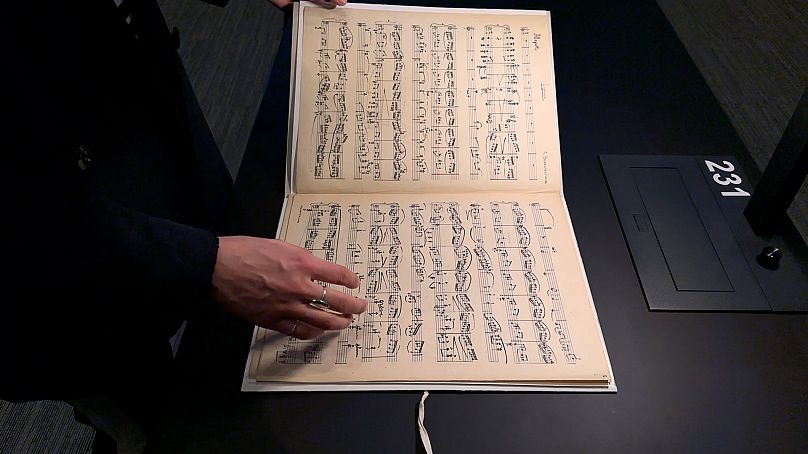The rare Stradivarius violin putting the spotlight on an unknown Polish composer
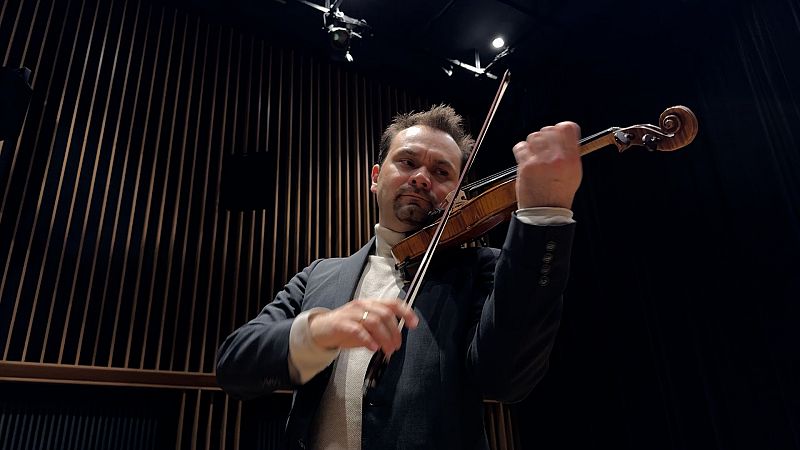
There is only one Stradivarius violin in Poland, a rare example that survived the turmoil of the Second World War and returned to Polish hands.
Now, Janusz Wawrowski, a violinist and professor at the Chopin University of Music in Warsaw, is using his musical talent and unique access to bring light to the talent of Polish composer Grażyna Bacewicz.
Antonio Stradivari, a master Italian craftsman of string instruments from Cremona, left behind around 1,000 instruments, including violins, violas and guitars, the latter of which unfortunately have not stood the test of time.
Stradivari's greatest secret
While the technology of lutherie - that of building string instruments - has evolved immeasurably since the time of Stradivari, his violins have maintained their irreplaceable status within the world of music.
"His violins are unique," Wawrowski tells Euronews Culture, "From what luthiers say, they are precisely made in terms of shape and geometry."
"We know that Stradivarius was really concerned with alchemy, he had a studio where he apparently didn't even let his wife and children enter," he adds.
Stradivarius violins are characterized not only by their perfect geometry, but also by their unique lacquer, which not only keeps the wood of the instrument safe, but also influences its sound. According to experts such as Wawrowski, it is this secret substance, concocted by Stradivari himself, which is key to the violins' unique sound.
Stradivari also used a special type of wood for his instruments, sourced from trees that grew harder and thicker during the long, harsh European winters of his time.
Today, as a result of the changing climate, Europe lacks such raw materials, which makes Stradivari's craftsmanship all the more original.
"Of course, today we have many luthiers around the world," says Wawrowski, adding that "throughout history, there have even been some who have bought Stradivarius’s studio and wood," including the famous French craftsman Jean-Baptiste Vuillaume.
Lost works
In Poland, the history of the Stradivarius carries additional weight. Prior to the Second World War, a few of the master craftsman's instruments were owned by Poles. However, the vast majority of these were lost, stolen by Soviet forces.
"In the city of Łódź alone, during the outbreak of World War Two, there were three violins crafted by Antonio Stradivarius," says Wawrowski.
But perhaps the most moving of these losses was that of a violin belonging to the Poznań family from Łódź, which became the beloved instrument of famous Russian violinist Igor Ojstrach.
"He made his career with it," says Wawrowski, "We also know from many musicians in Russia that they are banned from entering Polish territory with some of these instruments."
The work of Stradivari, lost during the war, has become a hot topic among musicians and collectors. To date, certain sources indicate that some of the stolen instruments remain in Russian hands.
Adventures with "Antek"
Although the violin is several hundred years old, it continues to travel the world, accompanying Wawrowski on his musical journey.
"Antek, as I call it, or the Stadivarius Polonia, once was held in the cockpit with German airline pilots," he says, "The flight captain told me, that such an instrument must have the absolutely most important seat, so it traveled with the pilots".
But not every airline has been as careful, resulting in dramatic consequences.
"In Vilnius, I was not let into the place," says Wawrowski, "the woman working there told me that I have to put the instrument into the baggage area, which would obviously result in it being broken into pieces."
Even in the face of such conflicts, Wawrowski's priorities have remained clear.
"It would be very irresponsible to put the instrument at risk," he says, "I was almost thrown out of the airport by security."
In Wawrowski's own words, he was told, "Either you throw the instrument like that or you leave the airport." Not wanting to risk damage to the precious violin, he took the bus and left.
The professor underlines that the privileges of such an instrument carry additional significance with them. "Playing on the Stradivarius is not only a pleasure, but also an enormous responsibility," he says. Aside from its technical perfection, the violin also allows Wawrowski to reach greater emotional depth in his performances than he could on any other instrument.
"It is an unbelievable tool which gives me the possibility to express myself, and to shape the sound, he tells Euronews Culture, "you can feel and hear that I can, as an experienced instrumentalist, shape the sound in any way that I can imagine it."
An ambassador for Polish culture
With this responsibility in hand, Wawrowski is bringing attention not only to his own musical talent and that of his students, but he's also bringing a wider audience to the compositions of Polish violinist Grażyna Bacewicz.
"My dream is to record the complete violin works of Grażyna Bacewicz, the fantastic 20th century composer and violinist, who achieved great success both as a composer and a violinist, she was probably the first female Polish composer to achieve such success," says the violinist.
Bacewicz herself once stood at the Chopin University of Music in Warsaw, teaching violin and composing some of her most well-known works.
"My students also gladly play the works of Grażyna Bacewicz, which makes me very happy because what’s important is that we pass this passion we have forward," says Wawrowski, emphasizing his delight in helping shine light on her work.
Like Chopin, Bacewicz also had strong ties to France, where she studied for many years, including under the watchful eye of famous composer Nadia Boulanger, who was responsible for instructing a generation of talented musicians.
"Her Seventh Violin Concerto, which I recorded not long ago, received Queen Elizabeth’s award in Brussels, where it was also performed for the first time with the Polish Radio Symphony Orchestra," says Wawrowski, adding that her works are now also being performed in Germany and the United Kingdom.
Bacewicz was not only known for her technical skill, but also for the emotional engagement she demanded in her works. For Wawrowski, the depth required by her music is perfectly matched by the expressive capabilities of the Stradivarius violin.
"All of Grażyna Bacewicz’s works are first and foremost characterized by the fact that there were written by a very good violinist, you can feel this very well," he says, adding that "every one of us violinists feels that this has been written by a composer who knew her way around the violin, which gives us the opportunity to present the instrument [...] showcasing the depth of the sound."
Many Polish composers have already become well-known around the world. Now, Wawrowski hopes that he can help Bacewicz ascend to her rightful place among the greats.
"There was Chopin, there was Wieniawski, now I think that Grażyna Bacewicz has the chance to become this kind of ambassador for Polish culture," he says.
Grażyna Bacewicz at the Polish National Library
The National Library in Warsaw boasts exceptional collections of Bacewicz's work.
"In the National Library, we have 180 musical manuscripts by Grażyna Bacewicz, as well as her handwritten personal and artistic archive: correspondence, diaries, notes, drafts of speeches, contracts with publishers, memoirs, manuscripts of novels, plays and short stories," according to Sonia Wronkowska from the Department of Music Collections at Poland's National Library.
Now, Bacewicz's manuscripts are available on demand in the library's digital archive.
Bacewicz's work is subject to copyright protection until 2039, but will enter the public domain on January 1, 2040.
"I think that Europe is opening its arms to Grażyna Bacewicz," says Wawrowski.
All the while, the Stradivarius Polonia is bringing both her music and its unique sound to connoisseurs and musical newcomers.


